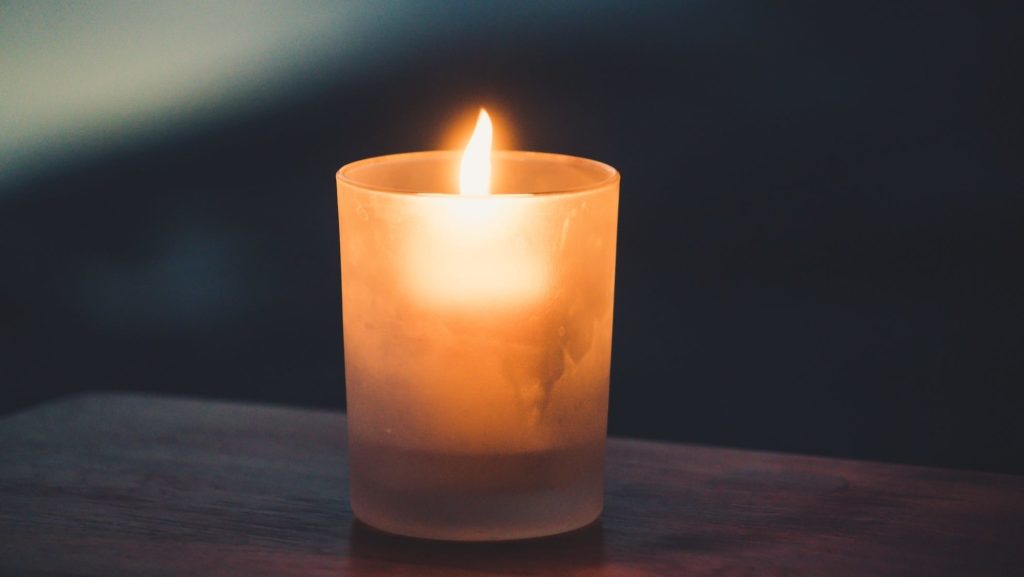7 Min Read
How to Deal With Maladaptive Grief
In 1969, Swiss psychiatrist Elisabeth Kubler-Ross published her groundbreaking book On Death and Dying. The book introduced the five stages of grief, which she believed most people experience after a loss or traumatic stress: denial, anger, bargaining, depression, and acceptance.
Based on Kubler-Ross’s work with terminally ill patients, her grief model validated the full range of emotions grievers may feel when a loved one dies. As more people learned of the five stages of grief, the more they understood that slipping into a short-term state of numbness or trying to make a deal with God to bring a loved one back was normal, acceptable responses to loss. In many ways, Kubler-Ross made it OK for people to grieve openly.

When grief gets complicated
In the fifty years since On Death and Dying, Kubler-Ross and her associates have clarified their ideas. Although the five grief symptoms she identified in her model are the most common grief reactions, they aren’t at all meant to be a linear process, nor is the model one-size-fits-all. Some people may experience bargaining before anger or never go through the denial stage at all. Some may not experience any of these emotions or behaviors. According to Kubler-Ross and experts today, that’s perfectly fine.
Psychiatry experts have developed additional models and theories of the grieving process, some of which build upon or further dissect the five stages, and some with brand new ideas of how grief should look. Overwhelmingly, these models agree that grieving is to be expected after a loss or trauma. And although every individual will most likely display varying reactions through the process, they eventually accept that their loved one is no longer with them and adjust to life without that person. In other words, they adapt to the change brought upon them my loss. This type of coping and acceptance is referred to as adaptive grief.
Grieving that doesn’t seem to lessen over time, becomes debilitating, or persists for an extended period is called complicated grief, or prolonged grief disorder. According to The Center for Complicated Grief at Columbia University’s School of Social Work, complicated grief is a “persistent form of intense grief in which maladaptive thoughts and dysfunctional behaviors are present along with continued yearning, longing and sadness and/or preoccupation with thoughts and memories of the person who died. Grief continues to dominate life and the future seems bleak and empty. Irrational thoughts that the deceased person might reappear are common and the bereaved person feels lost and alone.”
The center estimates that 10 to 15% of bereaved people in the general population have trouble adapting to the loss of a loved one and develop symptoms of complicated grief.
Types of grief
In general, the term “grief” encompasses the full range of emotions, behaviors, thoughts, and even physical changes a person experiences after a significant loss. That may be the death of a loved one or a traumatic life event in which the person feels the incredible loss of some kind, such as a child being suddenly and permanently isolated or removed from the care of a parent or guardian.
Psychologists and grief experts have categorized grief into several types, some of which are based on the way a person copes with their feelings. For example, acute grief is a powerful and painful response that occurs immediately after a loss and tends to dominate the griever’s life for a short time but eventually passes. Integrated grief is a longer-lasting form of mourning in which grievers continue feeling loss-related thoughts throughout their lives. Still, these thoughts don’t debilitate them emotionally or take over their ability to function. Both of these situations are considered by psychologists to be healthy, normal reactions to loss.
Complicated grief, as Columbia’s center explains, is persistent, intense, and dominating. Within the classification of complicated grief are several different variations, all of which present concerns and opportunities for healing:
- Absent grief occurs when bereaved adults act as if nothing has happened, and take on a kind of emotional numbness that is much different from the Kubler-Ross model’s stage of denial.
- Delayed grief often happens when mourning is postponed by the responsibilities that immediately follow a death, like dealing with arrangements or tending to other family members.
- Inhibited grief happens when the mourner doesn’t allow himself or herself to experience the expected stages of grief. They suppress their feelings, which sometimes manifests as a physical illness or pain.
- Unanticipated grief stems from a sudden, unexpected loss of a loved one. Accepting the event and adapting to life without the person becomes more emotionally painful and prolonged.
- Disenfranchised grief occurs when bereaved adults grieve for someone or something others seem to perceive as less significant, such as an ex-husband, coworker, or pet.
As grief is further explored by the psychiatric community, more specific types of complicated grief will be identified. Still, these few examples show what complicated grievers have in common: a maladaptive reaction to loss.
What is maladaptive grief?
Maladaptive grief encompasses the post-loss thoughts and behaviors that are problematic, dysfunctional, dominating, or catastrophizing. These are the “exceesingly over-the-top” emotions and self-destructive behaviors that endanger a person’s emotional, mental, and physical wellbeing following a death or loss due to trauma.
For some people, maladaptive grief takes the form of avoidance. They might deliberately stay away from places they enjoyed visiting with their lost loved one, or where the loved one spent a lot of his or her own time. Other people react oppositely; they try to keep the person they’ve lost close to them and avoid the reality of a world without them. These grievers surround themselves with reminders of their loved ones, like photos or personal belongings. They may listen to recordings of their deceased wife’s voice, watch videos of a dead child over and over again, and smell the clothing that their husband wore and that they refuse to let go of.
People with complicated or maladaptive grief often ignore their own emotional and physical needs. Initial, expected reactions and mild symptoms of grief like a loss of appetite or insomnia become chronic and prolonged. They may feel guilty for laughing at a joke or enjoying a favorite hobby because they believe they should be in constant mourning.
According to the Mayo Clinic, common signs and symptoms of complicated or prolonged grief may also include:
- bitterness about your loss,
- belief you could have prevented the death,
- lack of trust in others,
- panic attacks or health worries,
- promiscuousness or careless relationships,
- feeling life has no purpose, or
- trouble carrying out regular routines.
Other maladaptive grievers will attempt to escape the reality of their loss through substance abuse, getting lost in a haze of drugs or alcohol. They may sleep as much as possible or engage in risky behaviors that endanger their lives or “tempt fate.” They might even attempt to hurt themselves or cause pain through self-destructive behaviors like cutting themselves until they bleed.
Often, the symptoms of complicated grief and maladaptive grief are very similar to the symptoms of depression, including sadness, anxiety, helplessness, isolation, guilt, and a loss of interest in things that you formerly enjoyed. Like depression and other mental health issues, if complicated grief and different extreme grief reactions go unaddressed or untreated, symptoms could potentially escalate into suicidal thoughts or even attempts at suicide.

Find a Therapist to Help With Maladaptive Grief
Get personalized matchesRisk factors of complicated grief
A recent study focused on individuals who had lost a husband or wife. Researchers sought to determine if a couple’s dependence upon one another before the loss could be a predictable risk factor for complicated grief. Before the study, researchers believed that interpersonal dependency on a spouse, or the tendency to rely on others for nurturing, guidance, and support, could result in maladaptive behaviors if the spouse should pass away. After the study, though, researchers agreed that a healthy level of interpersonal dependency during the marriage — adaptive dependency — helped the surviving spouse cope with and accept the loss.
On the other hand, in a marital relationship where one spouse’s dependency needs weren’t met, or maladaptive dependency, seemed to result in a more extended period of mourning and an even more complicated form of grief. These clinical outcomes could potentially help the loved ones of bereaved adults who have lost spouses to anticipate complicated grief and help the individual find help from a mental health professional before their grief becomes debilitating.
The psychiatric community is working to identify other risk factors of maladaptive and complicated grief. Researchers hypothesize that also like depression, complicated grief may be caused by genetics, body chemistry, personality, or environment. For example, someone who is already suffering from a mental health condition like a mood or anxiety disorder may be more susceptible to prolonged grief or the inability to cope or grieve. In contrast, someone with well-adjusted coping strategies may adjust more quickly and easily.
Certain types of loss, including the loss of an unborn baby or young child, deaths of multiple loved ones within a short period, violent, accidental deaths, or women whose husbands’ deaths leave them without sufficient financial or emotional support to raise young children.
The loss of a loved one can also bring back previous traumas and losses that haven’t been adequately dealt with emotionally. This type of remembrance can complicate grieving for the current loss, bringing back a flood of feelings like hopelessness or isolation, which the person felt after the earlier event.
Treating maladaptive grief
At one time, grief was thought to be a personal struggle — one that couldn’t or shouldn’t be tackled by medical or mental health professionals. However, with its similarities to depression, complicated grief is now treated as a disorder, with treatments including therapy potentially combined with medication.
An individualized treatment plan will help you to build resilience and gradually adapt to your loss. Empirical evidence from at least one recent study of various situations of loss, trauma, and grief supports this course of treatment.
The death of a parent can be particularly traumatizing, but a 2014 study of 64 orphaned children in Tanzania found hope in a particular method of mental health therapy. During weekly sessions, the children and their guardians participated in trauma-focused cognitive behavior therapy (TF-CBT). Cognitive behavior therapy is a type of psychotherapy, or talk therapy, which helps patients explore and become aware of their inaccurate or negative thoughts so they can deal with them more positively. Posttreatment, the children in the Tanzania study, showed improvement over their pretreatment baseline in depression symptoms, overall behavioral adjustments, and unresolved grief. These findings indicate that the use of TF-CBT could be an effective treatment for others suffering from prolonged grief.
Columbia University’s center advocates treating complicated grief in sessions that are structured similarly to cognitive behavior therapy. The center uses seven core themes in their work:
- understanding grief,
- managing painful emotions,
- thinking about the future,
- strengthening relationships,
- telling the story of the death,
- learning to live with reminders, and
- remembering the person who died.
Each therapy session begins with a review of the past week, ends with a summary of the session’s work, and includes planning the next week’s session. Columbia’s team has seen promising results from this approach to grief therapy, with 70% of patients showing improvement after four or five months.
If you or someone you know seems to be suffering from complicated grief or exhibiting maladaptive behaviors, finding a compatible mental health professional can be the first step toward recovery. When it comes to selecting a licensed counselor or therapist, patients are often more comfortable with a professional with specific traits, including, for example, a preferred gender, age, race, sexual orientation, specialty, or geographic location. To find the best match for you or your loved one, consider turning to a specialized therapist-selection tool like WithTherapy.com. Working with a mental health professional that you trust, respect, and enjoy being around can maximize your chances of adapting to your loss and overcoming the complications of grief.
Find a Therapist to Help With Maladaptive Grief




